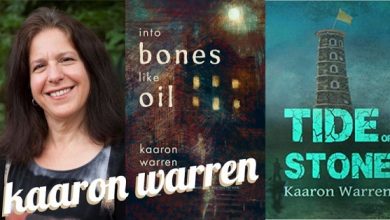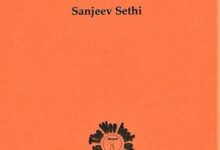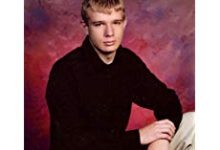Interview with New York Times best-selling author, Brandon Sanderson
It has been a great privilege for the Media Team to interview #1 New York Times best selling author Brandon Sanderson. His writing has earned him numerous awards. He won the Romantic Times Reviewers’ Choice Best Book and the Best Epic Fantasy Novel awards for his book Elantris. He won the UPC Science fiction award for Defending Elysium, The Hugo award for Best Novella for The Emperor’s Soul, and the David Gemmell Legend award for The Way of Kings and for Words of Radiance. He’s also claimed several Whitney Awards for The Hero of Ages, The Way of Kings, The Alloy of Law, Steelheart, and Words of Radiance.
Throughout his career he has written several series and over twenty books, along with several short fiction pieces and is consistently working on giving readers like you fantasy of epic proportions.
Brandon started reading at an early age after becoming inspired by Barbara Hambly’s Dragonsbane. Since then his passion became a quest for the best books, and his love of epic fantasy was cultivated.
He always diligently pursued writing but it was always second to other jobs he had during his young adult life. He couldn’t stay away though, and when he finally got his first book deal, being an author became his main career. Alongside writing, he also teaches a class at Brigham Young University where he went to college. To get a more extensive telling of Brandon’s life, check out his bio here.
Without further procrastination, here is our awesome interview with Brandon Sanderson!
What is your favorite part about writing and why?
I love the power of a good story, well told. The emotions, the power of imagination, the participation of it. A great story is something a reader takes part in, finishes themselves, by imagining the characters and events. The beauty and timelessness of the novel form is related to this participation. It’s a wonderful thing, almost like telepathy! I imagine something, put it on the page, and then the reader imagines it—but changed, with their own touches and flourishes.
Have there been any authors or books that have influenced you over the course of your writing career? Who and why?
The biggest influences on my style came from the books I read as a teenager first discovering the fantasy genre. In the eighth grade, I had an English teacher who pointed me toward Dragonsbane by Barbara Hambly. That book changed my life. When I first read it, I was amazed—I had no idea books like that existed. It engaged my imagination like no other book ever had, and it even helped me understand my own mother better, because the main character’s conflicts gave me a perspective on what my mother went through when she chose to focus on her family rather than her career. The book was creative and fun, yet it helped me understand life. At that point I started reading every fantasy book I could get my hands on, including Robert Jordan’s first Wheel of Time book, The Eye of the World, as well as the works of Melanie Rawn, Anne McCaffrey, Tad Williams, David Eddings.I was hooked, and as I read more and more books, my grades went up in school—I went from a low-end average student to someone who got top grades.
It didn’t take reading many fantasy books before I decided writing them was what I wanted to do with my life. I started my first book when I was fifteen. It was horrible, but I just kept writing and writing until I actually got any good.
How did you prepare yourself and your writing for when you were chosen to take over The Wheel of Time series? Did you find it to be difficult or easy to pick up?
It was quite difficult! I prepared by, first off, re-reading the series. I had read it several times, starting the first book when I was 15. It was a different experience, reading them over again, knowing I was going to write the series’s ending myself.
I toyed with trying to match Mr. Jordan’s style exactly, but then decided it read too much like parody. I settled for a blending of my style and his characters, trying to match their voices without using exactly the same words he would. I describe it as “Same actors, different director.”
Of all the books you’ve written, which is your favorite and why?
That’s like asking me my favorite child! Not something I can really answer, I’m afraid. It’s generally whichever one I’m working on at the moment.
Do you have a particular method when you teach your creative writing class, and what is your favorite part about teaching it?
My favorite part is interacting with new writers. There’s a level of enthusiasm and freshness to the way they approach their stories; it’s infectious, and can be a real boost.
I approach the class with a simple methodology: Every writer is different, and there is no one way to write a story. The idea is to give the students access to as many writing tools as possible.
You speak about marketing in the second half of your writing class. In which ways can authors stay abreast of marketing tactics?
The primary one is networking with other authors, I’d say. Listen to what they’re doing, and what they’re finding successful. But there’s a reason I put it at the end of my class—good storytelling comes first. Practice that before you worry too much about marketing.
Do you have any advice for those who are struggling to get their novels published and are considering giving up?
I hit a point in my writing where I had to make a decision like this. It was around 2001 or so. I’d written twelve novels at that point, all unpublished. The rejection letters were flooding in. I’d tried, with my latest few books, to write more toward the market—do what I saw other writers doing, and having success with.
Well, I chased the market too hard, and those latest books were among the worst I’d written in a long time. I was dejected. Publishers didn’t like what I wrote when I was writing what I loved, but when I tried to do it someone else’s way, I ended up with books that were even worse.
This was an important decision point for me. I looked at those twelve books, and thought about just how wonderful it had been to write them. The passion of the story, the total devotion to an incredible project, the pure joy of taking nothing—a blank page—and ending with something. Each book had been a gluttonous feast of creativity and fulfillment.
I decided that was what my career was about. And if I hit age eighty, with a hundred unpublished novels, I’d be satisfied with my life—because the story, and the writing, was what I loved. I sat down, and I wrote my thirteenth novel—a book called The Way of Kings. The biggest, most epic, most incredible story I could imagine. When editors had been telling me my books were too long at 200k words, I wrote this one at 400k. I gave myself no bounds, didn’t try to satisfy anyone but my own hunger for a compelling story.
I finally sold a book (the sixth I’d written, finished years before) within months of finishing The Way of Kings. And now, ten years later, the heavily revised version of The Way of Kings is my most famous—and best-selling—work.
Where you can go to find out more about Brandon and his works:
Brandon has a personal website which he updates with blogs, giving details about his past and current projects. He has recently been promoting his latest book Shadow of Self, book five of the Mistborn series and sequel to The Alloy of Law. The release date is October 6th, so be sure to check it out and get all the updates on this book and others here athttp://brandonsanderson.com/
Other places to reach out to, or keep up with Brandon:
Twitter
Amazon Page
Facebook
Google+
To get a taste of Brandon’s teaching style and a little insight on his class, check out this video:









